One of the regular article features in each issue of Southern Soil is Table Talk. In those articles, I have conversations with individuals involved in the local food system to discuss issues related to sustainability and how we can do better. I provide their perspectives for readers to view, but I keep my own side of the conversation out of it.
In this blog, I’ll be addressing those issues myself… so, in effect I’m going to have a conversation with myself and share my perspective on these issues! Talking to oneself is normal, right?
I’ve touched on my food journey a few times as I’ve written for Southern Soil. It began about 10 years ago and stemmed from my concern for animal welfare issues. Finishing up my Master’s in Public Administration with a focus on nonprofits at Georgia Southern University, I was setting up a nonprofit organization as one of my final projects.
At one point through this process, I was asked the question of whether this nonprofit would advocate for humane treatment of all animals or just the cute ones we usually have as pets? My response being that it would advocate for all animals and I was again challenged as to whether that would include the animals I eat.
Well, to be honest, at that point in my life I hadn’t really considered the treatment of animals raised for food. I was not so naive as to not know that hamburger had indeed at one point been a living, breathing cow; but beyond considering the ethics of whether or not eating meat was ok (which I believed it was), I had not really considered how the animal was treated prior to slaughter.
It didn’t take very long sitting at my computer and using Google to discover that what I didn’t know was hurting me, it was hurting the planet, and it was certainly hurting the animals being raised for food.
I became obsessed. I started a blog (which no one read, but has some great stuff in it if you’d like to check it out!) I learned all about Confined Animal Feeding Operations (heretofore known as CAFOs) and other ways that the Industrial Revolution had “revolutionized” food production. I learned things that I cannot unlearn and unsee, that are so horrific the average American would be appalled except they are more likely to dismiss it as urban legend than accept that it is a reality they have helped to create.
The complete and utter disregard for life and the living beings that are treated like cogs in a machine, bits and bobs that are part of a manufacturing process as opposed to the sentient beings they actually are.
The atrocities that occur on a regular basis within our food system right here in the US easily qualify as animal cruelty and I guarantee that anyone with a modicum of decency would find that what goes on in these operations is unacceptable. And the fact that these practices are industry standards is absolutely mind blowing.
I prefer not to go into gory detail here, but I encourage each of you to do your own investigation. It really doesn’t take much time and it will be life changing.
It changed my life. After learning the things I learned, it was like falling through the looking glass and realizing the world I thought I lived in really did not actually exist and instead I lived in one that I could not comprehend.
I’m not a vegetarian and really did not want to become one. So, my next intense investigation led me on a search to find a way to continue to eat meat, but to do so in a way that I did not find so objectionable. So, I began to search for things that I was as yet unfamiliar with …. Things like sustainable agriculture, pasture-raised meats, free-range chickens, grass fed and finished beef and organic produce (remember this was 10 years ago and these terms were not nearly as mainstream as they are today).
This is the first of a series of blog posts where I will address the same five questions that I pose to all my victims … errr… interviewees. Next week, I’ll give my opinion on the state of our current food system here in Southeast Georgia from the perspective of a consumer. Here’s a hint … it pretty much sucks, but it’s better than it used to be!
As always, if you like what you read here, please help us spread the word so we can continue to grow our audience and help grow the local food movement!
Let’s grow together!
LeeAnna Tatum, editor/publisher


